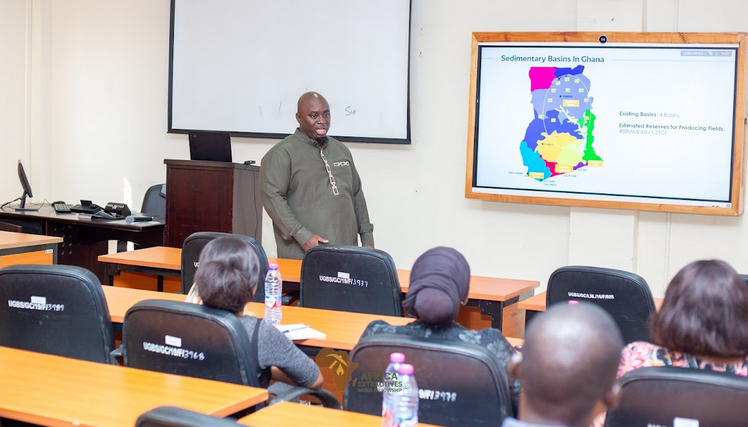Ghana is moving forward with plans to establish a Petroleum and Petrochemical Hub aimed at strengthening the country’s energy sector and supporting economic growth, Kwabena Owusu-Abrokwa, Director of Operations and Technical at the Petroleum Hub Development Corporation (PHDC), has said.
The PHDC, established under the Petroleum Hub Development Corporation Act of 2020 (Act 1053), is tasked with developing a fully integrated petroleum hub in Ghana.
The project will include three refineries with a combined capacity of 900,000 barrels per day, five petrochemical plants, storage facilities capable of holding 10 million cubic meters, and at least two jetties with deep-water access.
Speaking on ‘Adding Value to the Petroleum Industry in Ghana: A Case Study of PHDC’ during the Africa Media Extractives Fellowship training in Accra on Wednesday, November 26, Owusu-Abrokwa outlined the strategic importance of the hub, noting that Ghana is well-positioned to meet growing regional demand for petroleum and petrochemical products, which has steadily increased over the past decade.
The hub is designed to cater to both domestic needs and the broader West African sub-region, where demand for clean petroleum products is projected to rise significantly through 2030.
The development will be executed in three phases, starting with one refinery, one petrochemical plant, and three million cubic meters of storage capacity, along with port and ancillary infrastructure. Subsequent phases will expand refinery and petrochemical capacity, storage facilities, and social amenities. The total project is estimated at US$60 billion.
The PHDC hub aims to attract investments through incentives including tax exemptions, repatriation guarantees, and provision of serviced land, while leveraging Ghana’s political stability, access to deep water ports, central location, skilled workforce, and natural resource endowment.
Owusu-Abrokwa emphasised that the hub will create jobs, stimulate local industries, attract foreign investment, and position Ghana as an energy center for West Africa. Funding for the project comes from Parliament-approved budgets, internally generated revenue, grants, and legally permitted loans.
The Petroleum Hub is expected to significantly increase Ghana’s GDP, create hundreds of thousands of jobs, and provide a reliable, sustainable, and environmentally responsible energy supply for the country and the region.
Read also
Ethics, inclusion, community partnerships key for Ghana’s mining sector – Joyce Aryee
